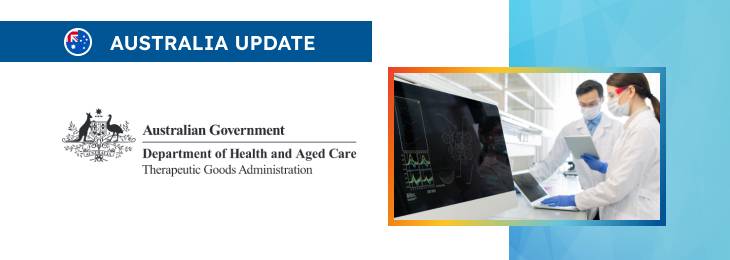The new article provides an in-depth overview of the problems identified and solutions proposed by the authority, together with the questions to be answered by the key stakeholders.

Table of content
The Therapeutic Goods Administration (TGA), an Australian regulating authority in healthcare products, has published a consultation paper clarifying how Clinical Decision Support System software is regulated.
The document is intended to initiate public consultations and collect feedback on the matter from industry representatives.
The swift evolution of software innovation, particularly those incorporating artificial intelligence (AI), has outpaced the traditional regulatory frameworks designed for medical devices.
The rapid market introduction of these novel software products, capable of diagnosing conditions from vast datasets, underscores the critical need for stringent regulatory oversight to safeguard public health.
This document outlines the challenges faced by the regulatory body, proposes amendments to current policies, and seeks stakeholder feedback to enhance the clarity and effectiveness of the regulatory framework governing CDSS software in Australia.
The Challenge of Rapid Software Innovation
Software innovations, especially AI-driven products, can quickly penetrate the market and affect public health significantly due to their broad reach and scale.
The authority has identified that the rapid deployment of such products necessitates a regulatory approach that ensures public safety without stifling innovation.
The misuse of CDSS software exemptions and the misapplication of the term “clinical decision support” highlight the need for clearer guidelines and definitions to prevent risks associated with the incorrect usage of these products.

Feedback on Current Regulatory Challenges
Stakeholder feedback has revealed significant concerns regarding the misuse of CDSS software exemptions and the potential for increased patient risk.
Key issues include the inappropriate application of the term “clinical decision support” to software performing direct diagnostic functions, misuse of exemptions by suppliers, and the incorrect application of conditional exemptions to in vitro diagnostic (IVD) software.
Additionally, there are worries about healthcare professionals’ ability to assess the performance of CDSS software accurately, potentially shifting the burden of risk onto clinicians.
Proposals for Regulatory Refinement
The TGA proposes several amendments to clarify.
The regulatory landscape for CDSS software emphasizes the need for precision in definitions and exemptions to better align with public health objectives. These proposals include:
- Defining CDSS Software: Introducing a comprehensive definition of CDSS software to delineate its scope clearly and aid stakeholders in distinguishing between decision-support tools and diagnostic software.
- Amending Schedule 4 Item 2.15: Revising the description of exempt CDSS software to address ambiguities and ensure that software fulfilling diagnostic functions, including processing medical images, falls outside the exemption scope
- Refining the Conditional Exemption Criteria: Modifying the exemption criteria to emphasize the necessity for healthcare professionals to verify the recommendations made by CDSS software, thus ensuring transparency and maintaining clinical decision-making integrity.
- Enhancing Guidance for Stakeholders: Developing new guidance materials to elucidate the changes in regulations and providing stakeholders with more apparent interpretations, definitions, and examples of regulated CDSS software.
Soliciting Feedback on Proposed Changes
The TGA seeks stakeholder input on these proposed changes to refine the regulatory approach for CDSS software.
The feedback will help ensure that the regulatory framework remains effective in safeguarding public health while supporting innovation.
Questions posed to stakeholders aim to assess whether the latter agrees with the proposed amendments and suggestions for improving guidance materials to understand regulatory obligations better.
Conclusion
The issuance of the present consultation paper represents a step taken by the Australian regulating authority towards further improvement of the existing legal framework for software-based medical devices.
The TGA plans to introduce certain amendments to the existing regulations and guidelines to ensure legal clarity and facilitate the relevant regulatory procedures.
How Can RegDesk Help?
RegDesk is a holistic Regulatory Information Management System that provides medical device and pharma companies with regulatory intelligence for over 120 markets worldwide. It can help you prepare and publish global applications, manage standards, run change assessments, and obtain real-time alerts on regulatory changes through a centralized platform. Our clients also have access to our network of over 4000 compliance experts worldwide to obtain verification on critical questions. Global expansion has never been this simple.

